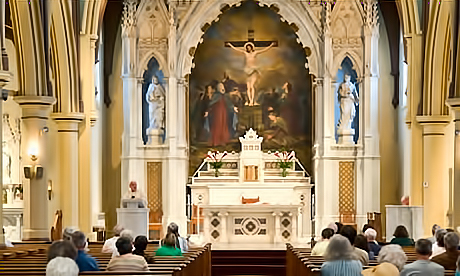The Boston Archdiocese is considering a radical reshuffle that would unite its 291 parishes into 80 to 120 groups according to an internal memo obtained by the Associated Press.
The changes aim to save money in the parishes, which are “in a spiral of financial distress,” church officials say in confidential minutes of meetings where the plan was discussed, AP reports.
Under the plan, more church closings would be possible, but they would be initiated by the new parish groups, not the archdiocese, as they were during the recent, painful round of closings.
The minutes also reveal Cardinal Sean O’Malley’s regret about how the archdiocese handled the closings that started in 2004, reducing the number of parishes from 357 to 291.
At the time, parishioners charged the archdiocese with shutting down healthy parishes without warning or reason. Some have since occupied their parish churches in round-the-clock protests.
Monsignor William Fay, head of the Archdiocesan Pastoral Planning Commission, emphasized the current restructuring plan is a work in progress. He said there’s no set timeline to complete it, and changes will come only after extensive consultation with local Catholics.
“We’ve got to move forward aggressively, but in a very thoughtful way,” he said. “We should be able to take the time we need to take to make sure this is done right.”
The archdiocese has cited numerous statistics to show it must run differently. Among them: 40 percent of its parishes won’t be able to pay their bills this year; the number of available priests will plummet from 316 today to 178 in a decade; only 17 percent of local Catholics now attend Mass.
In theory, the streamlined parish would run cheaper, even as it’s being strengthened spiritually and numerically by an ongoing evangelization push, including the “Catholics Come Home” advertising campaign that aimed to draw lapsed Catholics back to church.
American Catholics are traditionally loyal to their congregations and pastor, but not the hierarchy, and that makes it tough when archdioceses try to lead change, said David O’Brien, a church historian at the University of Dayton.
It’s also clear, though, that the current structure must be altered, O’Brien said.
Source
- CBS Boston
- Image: Boston Archdiocese
